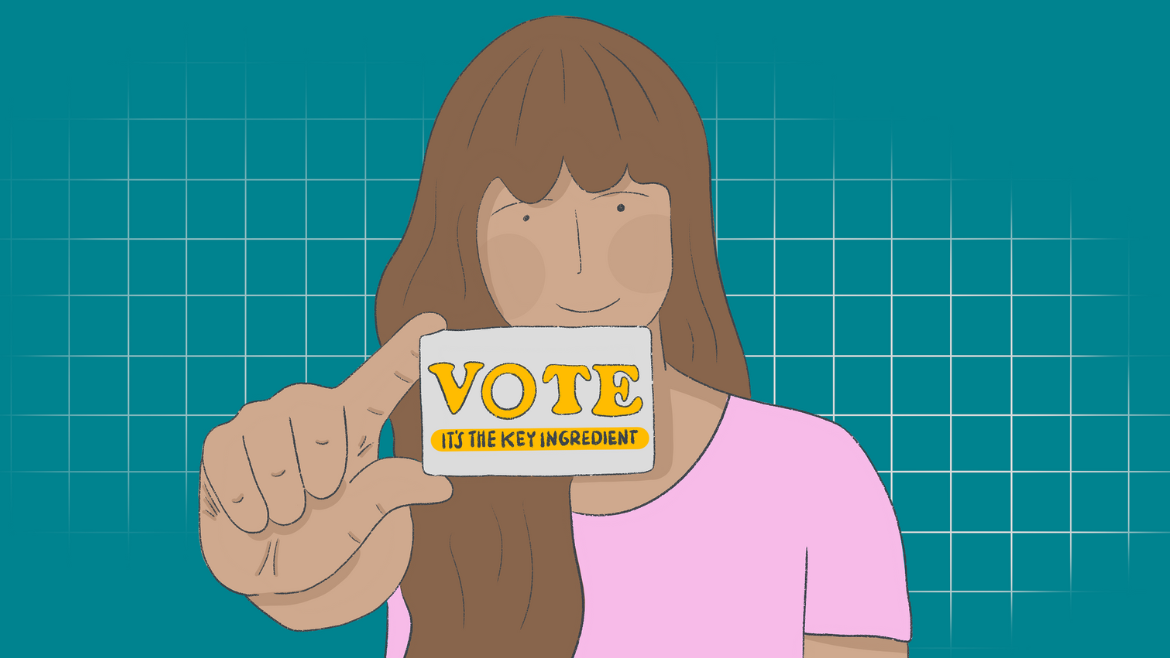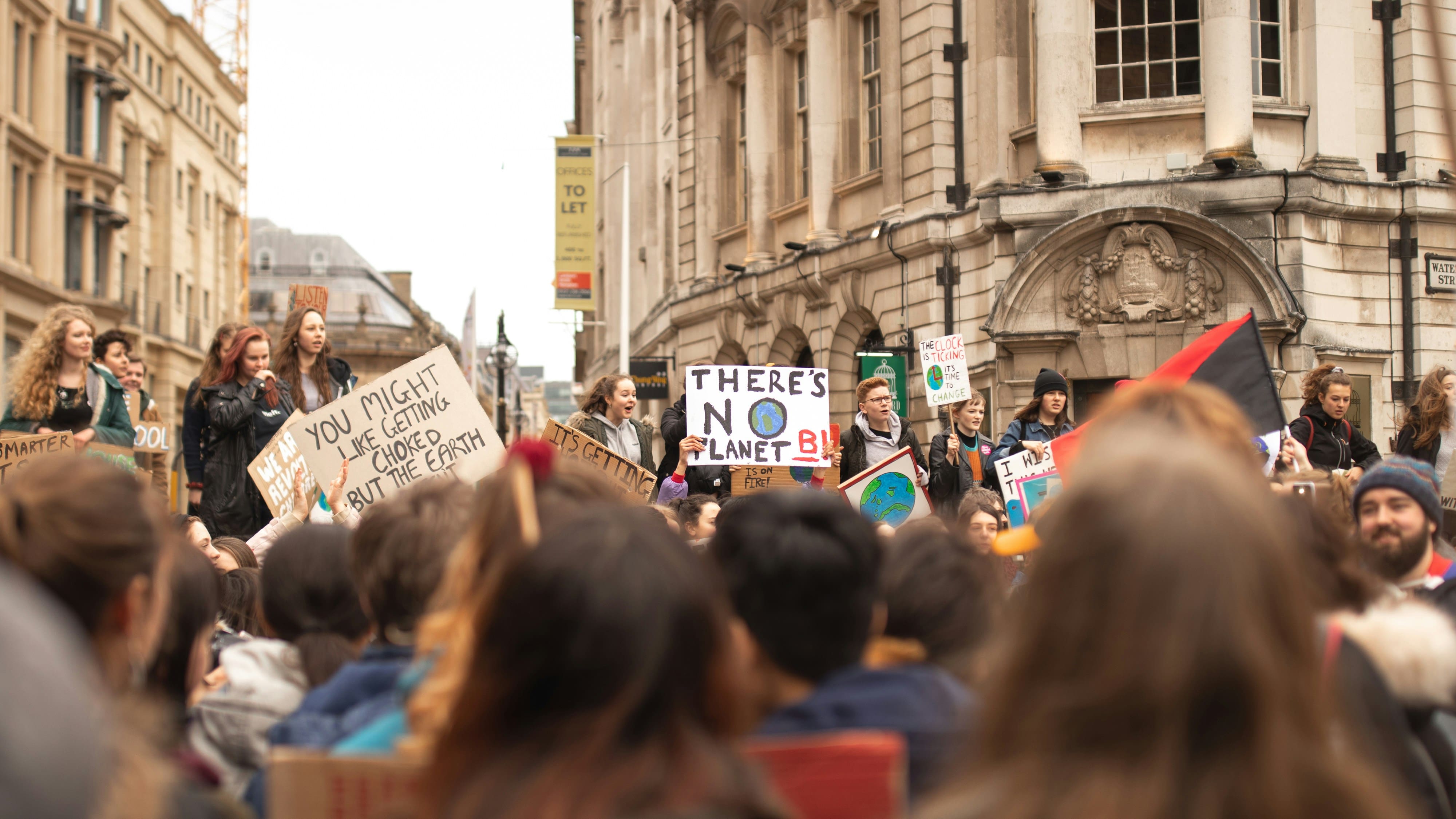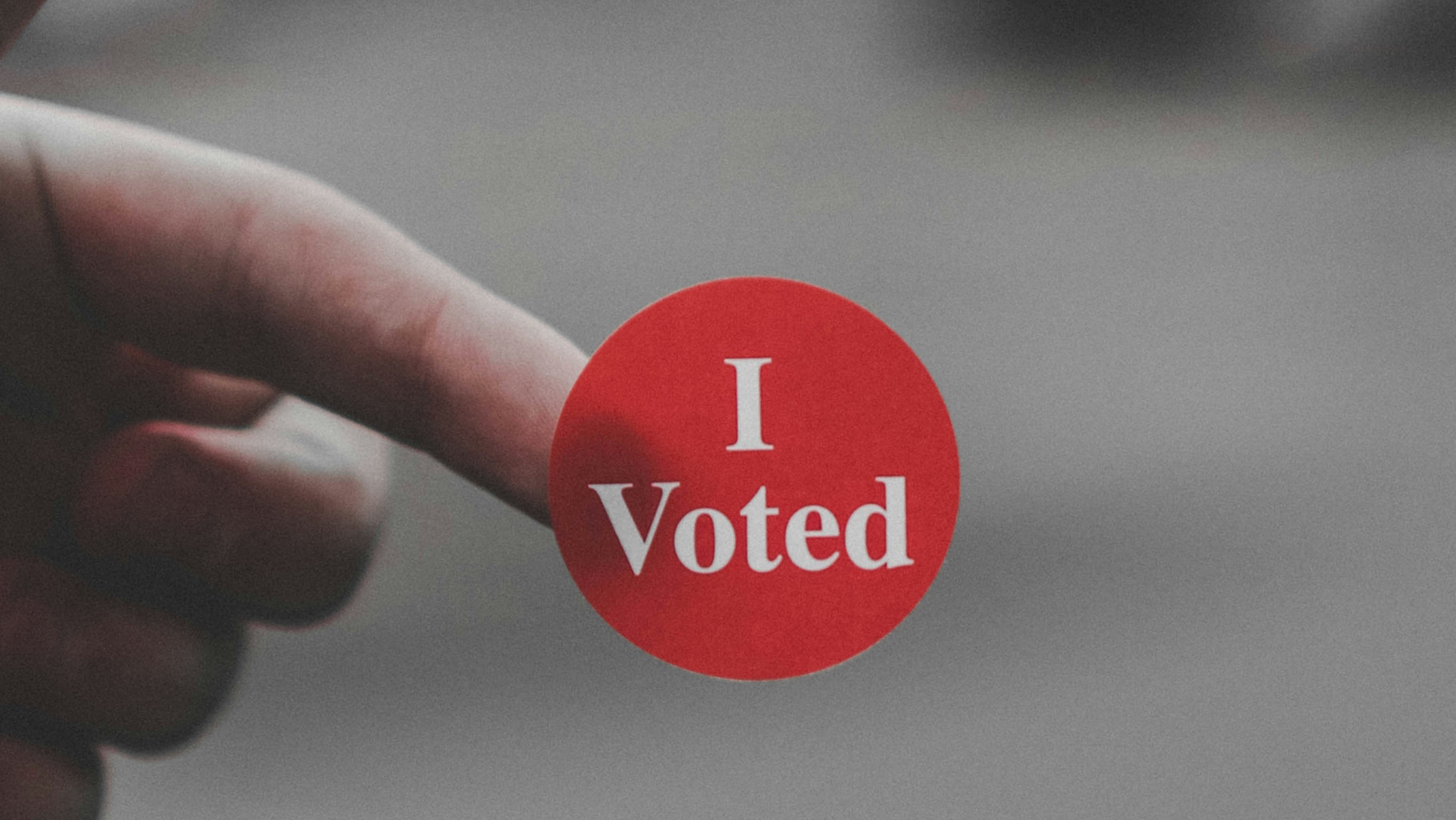
Illustration by Daniela Nunes
Youth workers support young people to cast their vote!
by Dr Dan Moxon
With the 2024 European elections on the horizon, as well as local and national elections in many Council of Europe member states, it’s time to talk elections and democracy. So what role can youth workers and the youth field play in relation to voting and policy making?
 The role of the youth worker
The role of the youth worker
Imagine being a youth worker and having a dialogue with a young person about the upcoming elections. Youth work is often reluctant to try and persuade young people to act in particular ways. Respect for young people’s autonomy and self-determination is central to our work. However, in the case of democracy our mandate is clear. Youth workers can, and should, encourage young people to be active in the democratic lives of our communities. In light of the upcoming European elections, this means using youth work to motivate young people to cast their vote at the ballot box.
So, while imagining you’re that youth worker talking with a young person about the elections, what sort of conversations and dialogues do you need to be having to increase youth voter turnout? According to a survey in 2021 by the Youth Partnership, only 34% of young people responding voted in the last local, national or European election (Yurttagüler and Pultar 2023). In order to have meaningful conversations with young people, we first must ask: Why might a young person not want to vote?
“I don’t know how to vote”
A typical or usual challenge might be that some young people don’t know how to vote. The role of youth workers here is vital. By informing young people about electoral processes in a meaningful and youth-friendly way, youth workers are empowering young people to cast their votes. A special task for youth workers here is to reach out to those young people who are first-time voters or those groups who don’t traditionally vote. Giving all young people access to high-quality youth information on the electoral process is key.
“I don’t know who to vote for”
Youth workers should also be prepared to discuss political candidates and political parties with young people. While it is expected that youth workers are impartial and neutral, facilitating such a discussion is essential to support young people in making an informed decision about voting. After all, elections are fundamentally about choosing candidates. But, youth workers should not attempt to persuade young people to vote for one party over another. Instead, we need to equip young people to make this decision for themselves and to choose candidates that align with their own values and beliefs. Young people need to have the skills to critically analyse the messages from electoral candidates to decide who to vote for. Through high-quality citizenship education activities, a youth worker can help young people build up the competences to understand which political candidates and parties they wish to vote for. A key part of this will be about developing young people’s media and information literacy, so that they can navigate disinformation, misinformation and mal-information within news sources, particularly online debate about political issues and political candidates.
As well as this, youth workers should not be afraid to raise concerns about political candidates who do not respect fundamental human rights. This is part of our mandate as educators – human rights and democracy go hand in hand. We also need to warn of the risk of voting abstention leading to a rise in extremist or populist parties.
“I am not interested in politics”
A youth worker is very unlikely to find that the young people they are having conversations with are not politically motivated. Most young people are strongly concerned about the world around them, particularly in relation to global issues. This is demonstrated by their wide involvement in forms of “alternative participation” such as protest movements and volunteering for a cause (Yurttagüler and Pultar 2023). However, young people are demotivated by political institutions, political parties and politicians. In short, young people have a lack of trust in these people and structures (Foa et al. 2020). A youth worker’s role, then, is to enable young people to see how their personal, social and political concerns can be raised or addressed through elections, democracy and democratic institutions.
“The candidates don’t represent young people”
This lack of trust is one of the principle barriers that disengages young people from voting. No matter how much information a youth worker gives a young person about how to cast a vote, if the young person doesn’t trust that any of the candidates represent their interests they are unlikely to turn up to the polling centre.
Young people believing that candidates and politicians don’t represent them is one of the most difficult things for a youth worker to address. The reality is that our democracies are not currently doing a good job representing young people. Globally, people under 30 years of age represent half of the world’s population, but only 2% of legislators (Stockemer and Sundström 2023). At a policy level, many countries have now stalled in terms of meeting young people’s basic human needs and providing the foundation of well-being or opportunities for youth (European Youth Forum 2023). The economic situation makes it increasingly difficult for young people to transition to secure education and employment (Krzaklewska et al. 2023).Youth workers need to engage with the reality of young people’s current experience of democratic life in an authentic manner. Therefore, telling young people that our democracies are currently working perfectly for them is not going to be convincing.
In this context, youth workers face the challenge of crafting messages that both acknowledge the challenges young people face and inspire young people to believe that engaging in electoral democracy can begin to create positive change. To do this our conversation with young people needs to remind them of the positives created by democracy in terms of fostering peace, security and stability across Europe. Youth workers need to instil support for democratic values and inspire young people to recognise the potential of voting to deliver the world young people want to see.

Photo by Callum Shaw on Unsplash
Beyond youth work…
It is clear developing young people’s knowledge, skills and attitudes for civic engagement through youth work is vital. But there are also limits to how much youth work can achieve on its own to revitalise young people’s relationship with democracy and voting. For this reason, the youth field (which includes more than just youth work) needs to do more than just educate young people. Our youth policies, in particular, need to focus on how our democratic structures and policy-making systems can be improved to better support and take account of the views of younger generations. There are many steps the youth field is currently taking in this direction, such as the following.
- Promoting participatory policy making – The youth field can enable young people to directly influence and become involved in policy making. This includes tools such as participatory budgeting, youth dialogues or co-production and co-management. By developing these mechanisms within the youth field, we help ensure that public policy better takes into account the needs and views of young people. The Youth Partnership and Council of Europe Joint Council on Youth (CMJ) guidelines on young people’s participation can provide support in these areas.
- Promoting youth mainstreaming and youth perspective(s) – Participatory policy making shouldn’t just be limited to the youth field. All areas of policy concern young people and the youth field has a role to play in spreading youth participatory approaches to other policy sectors. The Youth Check and the Youth Partnership’s research on these topics show some of the progress we are making in this area.
- Promoting accessible, youth-friendly information on the work of democratic institutions – Good public communication about policy making is key to building up young people’s trust in democracy. Initiatives like the European Parliament’s European Youth Event and the Youth Hub, as well as similar approaches at national levels are good examples of this. They show transparency in the work of parliaments and other bodies and help young people feel confident in policy making by demonstrating the positive impact these bodies have on young people’s lives.
- Supporting young people to become (political) leaders – Young people should not limit themselves only to voting for others – they can also stand as electoral candidates. Youth councils and youth organisations all provide crucial opportunities for young people to develop the competences that can make them highly credible political candidates. Protecting the civic space for youth civil society and encouraging young people from within that space to go on and stand for election has the potential to lead to many younger candidates appearing on the voting slip and having a chance to be elected.
The responsibility to create more effective democratic institutions and democracies doesn’t lie only with the youth field. Democracies are for everyone, not just young people. The Council of Europe also has many measures and programmes in place to promote good governance and to make sure our democracies work for all Europeans, young and old.
 Summing up
Summing up
Bringing young people back to the ballot box needs the youth sector to work on two levels. First, through high-quality youth work, we can educate and inform young people, enabling them to build the knowledge, skills, values and attitudes necessary to inspire them to vote. But we also need to make sure that our democratic bodies have the potential to create policies that young people believe are worth voting for. Policy makers need to give full attention to the needs of concerns of young people. Policy-making bodies need to become more transparent and more responsive to the voices of younger generations. This means promoting tools for improving governance and considering intergenerational dimensions of policy making, by including the voices of young people. In short, demonstrating that European democracies can truly work for the younger generations.

Photo by Parker Johnson on Unsplash
 References
References
European Youth Forum (2023), “Youth progress index 2023”, European Youth Forum, Brussels.
Foa R. S., Klassen A., Wenger D., Rand A. and Slade M. (2020), “Youth and satisfaction with democracy: reversing the democratic disconnect?”, Centre for the Future of Democracy, Cambridge.
Krzaklewska E., Williamson W., Stapleton S. and Tillmann F. (2023), “Transitions on hold”, EU–Council of Europe Youth Partnership, Strasbourg.
Stockemer D. and Sundström A. (2023), “Age inequalities in political representation: a review article”, Government and Opposition, pp. 1-18. doi:10.1017/gov.2023.11.
Yurttagüler L. and Pultar E. (2023), “New forms of youth political participation: statistical survey”, EU–Council of Europe Youth Partnership, Strasbourg.

Dan is a youth worker, researchers and expert specialising in young people's participation.


